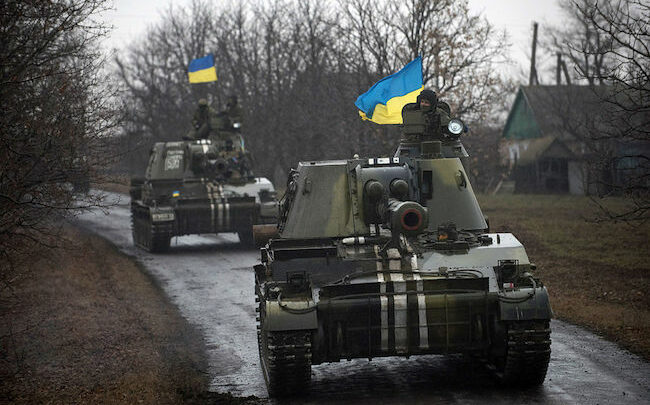The genie’s out of the bottle after Kiev’s Turkish drones strike Donbass
Now that Kiev is in possession of such potentially game-changing offensive weapons that have already been proven to have emboldened its aggression in the ongoing civil war over its eastern region's future political status, there's nothing that Ankara can do to restrain its partner.

I wrote earlier this summer that “Turkey’s Military Engagement With The Lublin Triangle Aims To Balance Russia”, which prognosticated the strategic impact of that country’s drone sales to Ukraine, Poland, and perhaps soon also Lithuania as well. Humbly speaking, my work accurately assessed the strategic dynamics in hindsight after one of Kiev’s Turkish drones just struck Donbass, prompting Russian presidential spokesman Peskov to once again warn about their destabilizing impact on regional conflicts such as that one.
Turkey’s “drone diplomacy” has become the primary pillar of its larger “military diplomacy”, which refers to the use of military means to advance political and strategic ends. In the case of Turkish-Ukrainian military cooperation, this aims to asymmetrically “balance” Russia’s military superiority in the Black Sea region. It can also be interpreted as tacit Turkish backing of NATO’s regional goals despite Ankara’s problems with many of that bloc’s Western members in recent years.
President Erdogan is practicing a very careful “balancing” act between East and West, which explains the unexpected diplomatic de-escalation between Turkey and the West a few days ago following 10 Western ambassadors’ joint statement last week demanding the release of a jailed businessman who they regard as a “political prisoner”. Turkey would prefer not to become too dependent on East or West, to which end it still tacitly coordinates with NATO in the Lublin Triangle while simultaneously enhancing ties with Russia and China.
The problem is that the proverbial genie is already out of the bottle when it comes to that country’s “drone diplomacy” with Ukraine. Now that Kiev is in possession of such potentially game-changing offensive weapons that have already been proven to have emboldened its aggression in the ongoing civil war over its eastern region’s future political status, there’s nothing that Ankara can do to restrain its partner. To the contrary, it’s now compelled to continue providing more equipment, spare parts, and maintenance.
This counterproductively serves to make Turkey an unofficial military participant in the Ukrainian Civil War. Although its role is much less than other NATO countries, it’s disproportionately significant because of the impact that its “drone diplomacy” has already had in reviving Kiev’s destabilizing aggression. If left unchecked, which is extremely likely for reasons of “military diplomatic” inertia, then this development could contribute to further complicating Russian-Turkish relations.
President Erdogan might therefore have gone a little bit too far in his attempts to “balance” Russia in the Lublin Triangle, which represents the northern reaches of the increasingly tense Black Sea region. Selling drones to NATO-member Poland and potentially to that country’s Lithuanian neighbor are one thing since neither are involved in any hot conflicts at the moment while providing them to Ukraine is another matter entirely because of its ongoing civil war that’s regarded (whether rightly or wrongly) as a NATO-Russia proxy war.
For comparison’s sake despite being an imperfect example, it would be as if Russia outfitted Syria with similar offensive weaponry then let it loose to bomb Turkish-backed “rebels”. Selling unarmed drones to Ukraine or Syria on the condition that they not be deployed until Turkey or Russia approves and then subsequently provides their armaments could be a creative use of “military diplomacy”, but exporting these wares already armed, ready to go, and under the full control of the recipient can lead to an uncontrollable situation.
Just as Russia unofficially seems to regard Turkey as an undeclared military participant in the conflict, so too would Turkey regard Russia as the same in the above example, especially if Turkish-allied “rebels” were struck by Syria’s Russian drones in that admittedly imperfect example. One can only imagine the Turkish reaction in such a scenario, yet Russia is remaining cool for now considering the immensely sensitive nature of its relations with Turkey. Be that as it may, as was already written, the genie is out of the bottle and won’t be put back in.
The new regional reality in Eastern Ukraine is that Turkey provided potentially game-changing weapons to Kiev which have already been proven to have emboldened it to carry out more acts of destabilizing aggression. Turkey might not have thought everything fully through, or perhaps it did and decided to up the stakes in its regional competition with Russia with the expectation that it can succeed in asymmetrically restoring a sense of military “balance” with it in the broader Black Sea region.
The first possibility would be the best-case scenario since it would at least enable Turkey to retain a degree of “plausible deniability” over its potentially hostile intentions towards Russian interests. The second, meanwhile, would worsen bilateral relations, especially if any of Turkey’s representatives – especially President Erdogan – publicly lent credence to these motives. Hopefully that won’t happen and this potentially major challenge to Russian-Turkish relations can be responsibly managed as effectively as possible given the new circumstances.




